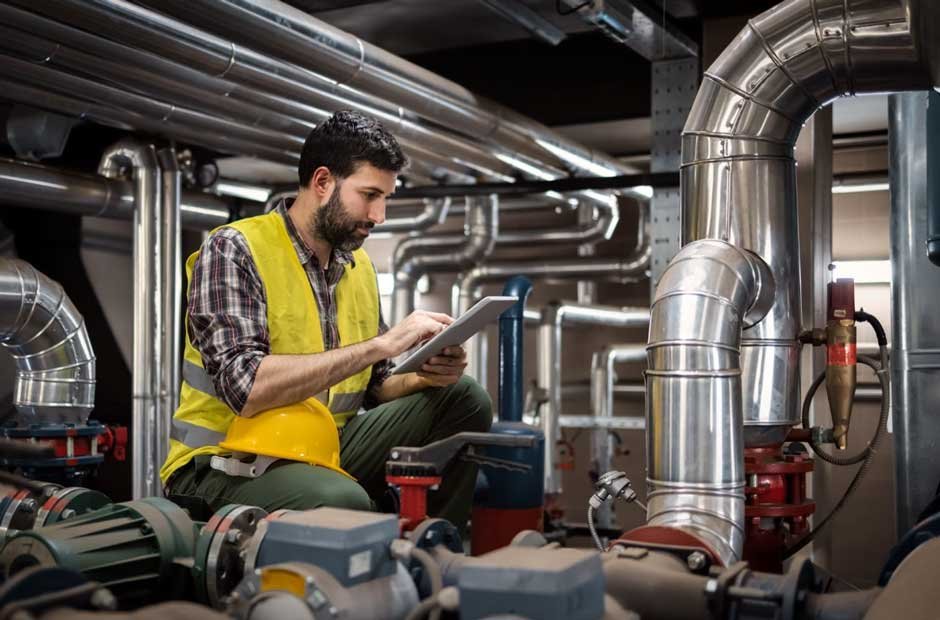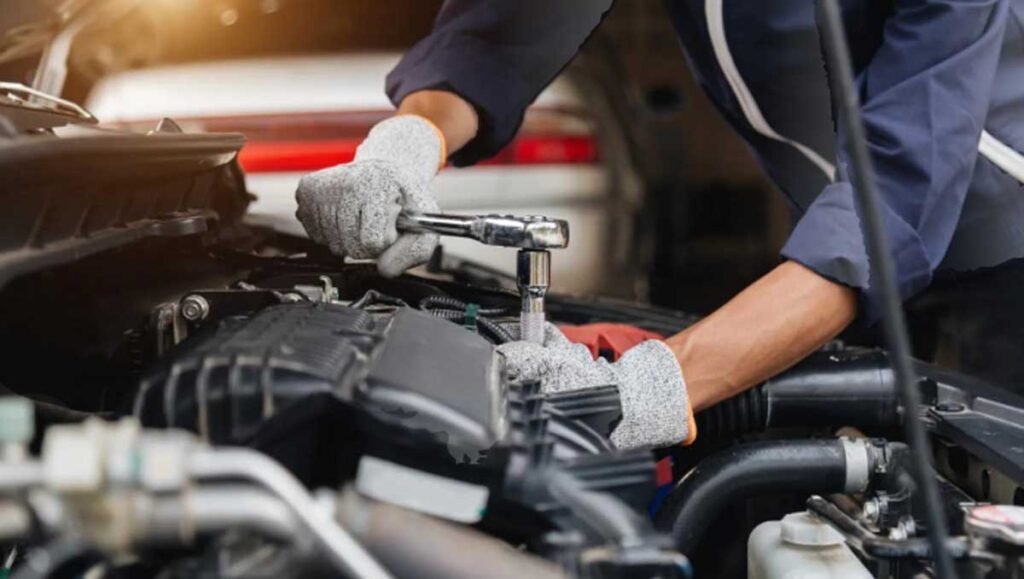The Difference Between Residential and Commercial Plumbing

Residential plumbing focuses on systems in homes, catering to smaller-scale needs like kitchens and bathrooms, notes Keyrenter Premier Group. Commercial plumbing, on the other hand, handles larger, more complex systems in businesses or industrial settings. While both require expertise, commercial plumbing demands specialized skills due to higher usage and advanced equipment. Understanding these differences helps property owners make informed decisions about maintenance and repairs.
Table of Contents
- What is Residential Plumbing?
- What is Commercial Plumbing?
- Key Differences Between Residential and Commercial Plumbing Systems
- How to Choose the Right Plumber for Your Needs
- Final Thoughts: Making Informed Decisions About Plumbing
Imagine waking up one morning only to find that your shower isn’t working. Or picture managing a bustling restaurant where the kitchen sink suddenly clogs during peak hours. These scenarios highlight why plumbing plays such a vital role in our daily lives — whether at home or in a business setting. While many people assume all plumbing work is similar, there are distinct differences between residential and commercial plumbing services.
A plumber in Calgary will tell you that understanding these distinctions can help you address issues effectively and avoid costly mistakes down the line. Let’s dive into what sets these two types of plumbing apart.
What is Residential Plumbing?
Residential plumbing refers to the systems and services designed for homes, apartments, and other living spaces. These systems are tailored to meet the needs of individuals and families, focusing on functionality and convenience in everyday life. From fixing leaky faucets to installing water heaters, residential plumbing encompasses a wide range of tasks that make sure households run smoothly.
In most cases, residential plumbing involves smaller-scale projects. For instance, a plumber might repair a burst pipe under the kitchen sink or unclog a bathtub drain. The materials and tools used are typically standard and suited for low to moderate water usage. Homeowners often interact with residential plumbers for routine maintenance, emergency repairs, or upgrades like installing energy-efficient fixtures.
One key aspect of residential plumbing is its focus on personal comfort. Whether it’s securing hot water flows consistently or preventing sewer backups, these services aim to create a safe and functional environment for families. Additionally, residential plumbing must comply with local building codes, which can vary depending on the region — something especially important in cities like Calgary.
What is Commercial Plumbing?
Commercial plumbing, in contrast to residential plumbing, is designed to serve larger properties such as office buildings, shopping malls, schools, and restaurants. These systems are far more complex due to the higher volume of water usage and the need to accommodate a greater number of users simultaneously. For example, a restaurant kitchen requires multiple sinks, dishwashers, and grease traps, all working seamlessly to handle the demands of a busy day.
The scope of commercial plumbing extends beyond simple repairs or installations. It often involves designing and maintaining intricate networks of pipes, fixtures, and drainage systems that can withstand constant wear and tear. Specialized equipment, such as industrial-grade water heaters and backflow prevention devices, is commonly used to meet these demands. Additionally, commercial plumbing must adhere to stricter regulations, including health and safety standards, to protect both employees and customers.
Another distinguishing factor is the frequency of maintenance required. In commercial settings, plumbing systems are under near-constant use, making proactive inspections and repairs essential to prevent costly disruptions. Business owners rely on skilled professionals who understand the unique challenges of commercial spaces, securing their operations continue without interruption.
Key Differences Between Residential and Commercial Plumbing Systems

When it comes to plumbing, the differences between residential and commercial systems go far beyond the size of the property. These distinctions affect everything from the tools used to the level of expertise required. Understanding these key differences can help property owners make informed decisions about their plumbing needs.
Scale and Complexity
The most obvious difference lies in the scale and complexity of the systems. Residential plumbing typically serves a single household or a small apartment building, with fewer fixtures and less demand on the system. In contrast, commercial plumbing must accommodate dozens — or even hundreds — of users at once. For example, an office building may have multiple bathrooms spread across several floors, requiring a more intricate network of pipes and drainage systems. This complexity means that commercial plumbers often need advanced training to design and maintain such systems effectively.
Equipment and Tools Used
Residential plumbing relies on standard tools and materials, such as PVC pipes and basic wrenches, which are sufficient for smaller-scale projects. On the other hand, commercial plumbing requires heavy-duty equipment capable of handling larger volumes of water and waste. Industrial-grade pipes, specialized valves, and high-capacity water heaters are just a few examples of the tools used in commercial settings. These materials are designed to withstand the rigors of constant use, securing durability and reliability in demanding environments.
Maintenance Requirements
Maintenance is another area where residential and commercial plumbing diverge significantly. In homes, plumbing issues tend to arise sporadically, allowing for reactive repairs when problems occur. However, in commercial spaces, the sheer volume of usage makes proactive maintenance essential. Regular inspections, drain cleanings, and system upgrades are necessary to prevent costly breakdowns that could disrupt business operations. For instance, a clogged pipe in a restaurant kitchen could lead to unsanitary conditions and lost revenue, highlighting the importance of staying ahead of potential issues.
How to Choose the Right Plumber for Your Needs
Choosing the right plumber is a decision that can significantly impact the outcome of your plumbing project. Whether you’re dealing with a residential issue like a leaky faucet or a commercial challenge such as installing an industrial-grade drainage system, finding the right professional secures the job is done efficiently and effectively. Here’s a detailed guide to help you make an informed choice.
1. Assess the Type of Project You Need Help With
The first step in choosing a plumber is understanding the nature and scope of your project. Plumbing needs vary greatly depending on whether you’re addressing a residential or commercial issue.
For Residential Plumbing:
If you’re a homeowner, you’ll likely need assistance with smaller-scale systems. Common residential plumbing tasks include:
- Fixing leaky faucets or pipes
- Installing or repairing water heaters
- Unclogging drains or toilets
- Addressing sewer line issues
For these types of projects, look for a plumber who specializes in household systems. They should have experience handling everyday plumbing challenges and be familiar with local regulations that apply to homes.
For Commercial Plumbing:
Commercial properties require plumbers with expertise in large-scale systems. These professionals must handle complex installations, frequent maintenance, and emergency repairs. Examples of commercial plumbing tasks include:
- Designing and maintaining multi-story drainage systems
- Installing industrial-grade water heaters and backflow prevention devices
- Securing compliance with health and safety standards
A plumber who understands the unique demands of commercial spaces — such as high water usage and strict building codes — is essential. If you’re in Calgary, consider hiring a plumber who has experience working on similar projects in the area.
2. Check Qualifications and Certifications
Once you’ve identified the type of plumber you need, it’s time to evaluate their qualifications. Plumbing is a highly technical field, and hiring someone without proper credentials can lead to subpar work or even legal issues.
- Licensing:
Make sure the plumber is licensed to operate in your region. Licensing requirements vary by province, but in Alberta, plumbers must complete an apprenticeship program and pass certification exams. A licensed plumber is more likely to adhere to industry standards and deliver quality work.
- Insurance:
Accidents can happen during plumbing projects, so it’s crucial to hire a plumber with liability insurance. This protects you from financial responsibility if property damage or injuries occur on the job.
- Certifications and Specializations:
Some plumbers specialize in specific areas, such as green plumbing solutions, gas line installations, or emergency services. If your project requires specialized skills — like installing energy-efficient fixtures or working with industrial equipment — make sure the plumber has relevant certifications.
- References and Reviews:
Don’t hesitate to ask for references or check online reviews. Websites like Google, Yelp, or the Better Business Bureau (BBB) can provide insights into a plumber’s reputation. Look for consistent praise regarding their professionalism, punctuality, and quality of work.
3. Prioritize Clear Communication and Transparency
A trustworthy plumber should communicate clearly and maintain transparency throughout the process. This is especially important when dealing with complex or costly projects.
- Detailed Explanations:
A good plumber will take the time to explain the problem and outline potential solutions. For example, if you’re facing a clogged drain, they should describe the cause of the issue and recommend the most effective repair method.
- Upfront Pricing:
Avoid plumbers who provide vague estimates or surprise you with hidden fees. Reputable professionals offer transparent pricing, often providing a written quote before starting the work. This helps you budget accordingly and avoid unexpected costs.
- No Unnecessary Upselling:
Some plumbers may try to upsell unnecessary services or replacements. For instance, if a simple pipe repair will suffice, you shouldn’t be pressured into replacing the entire system. A reliable plumber will prioritize your needs and suggest only what’s necessary.
4. Evaluate Availability and Emergency Services
Plumbing issues don’t always occur during business hours. Whether it’s a burst pipe flooding your basement or a malfunctioning water heater at your restaurant, emergencies require immediate attention.
- 24/7 Availability:
If you own a business or manage a property, having access to a plumber who offers emergency services is invaluable. Look for companies that provide round-the-clock support to minimize downtime and prevent further damage.
- Response Time:
Inquire about their average response time for both scheduled appointments and emergencies. A plumber who arrives promptly demonstrates reliability and respect for your time.
5. Consider Long-Term Value Over Cost
While it might be tempting to choose the cheapest option, remember that plumbing is an investment in your property’s functionality and safety. Cheaper services may lead to substandard work, resulting in more frequent repairs or replacements down the line.
Final Thoughts: Making Informed Decisions About Plumbing
Plumbing is more than just pipes and fixtures — it’s the backbone of any functional home or business. Understanding the differences between residential and commercial plumbing empowers property owners to make informed decisions when issues arise. From the scale and complexity of systems to the tools and expertise required, these distinctions highlight the importance of hiring the right professional for the job.





